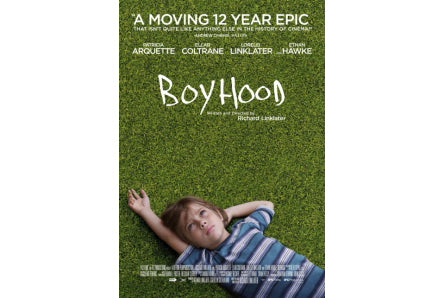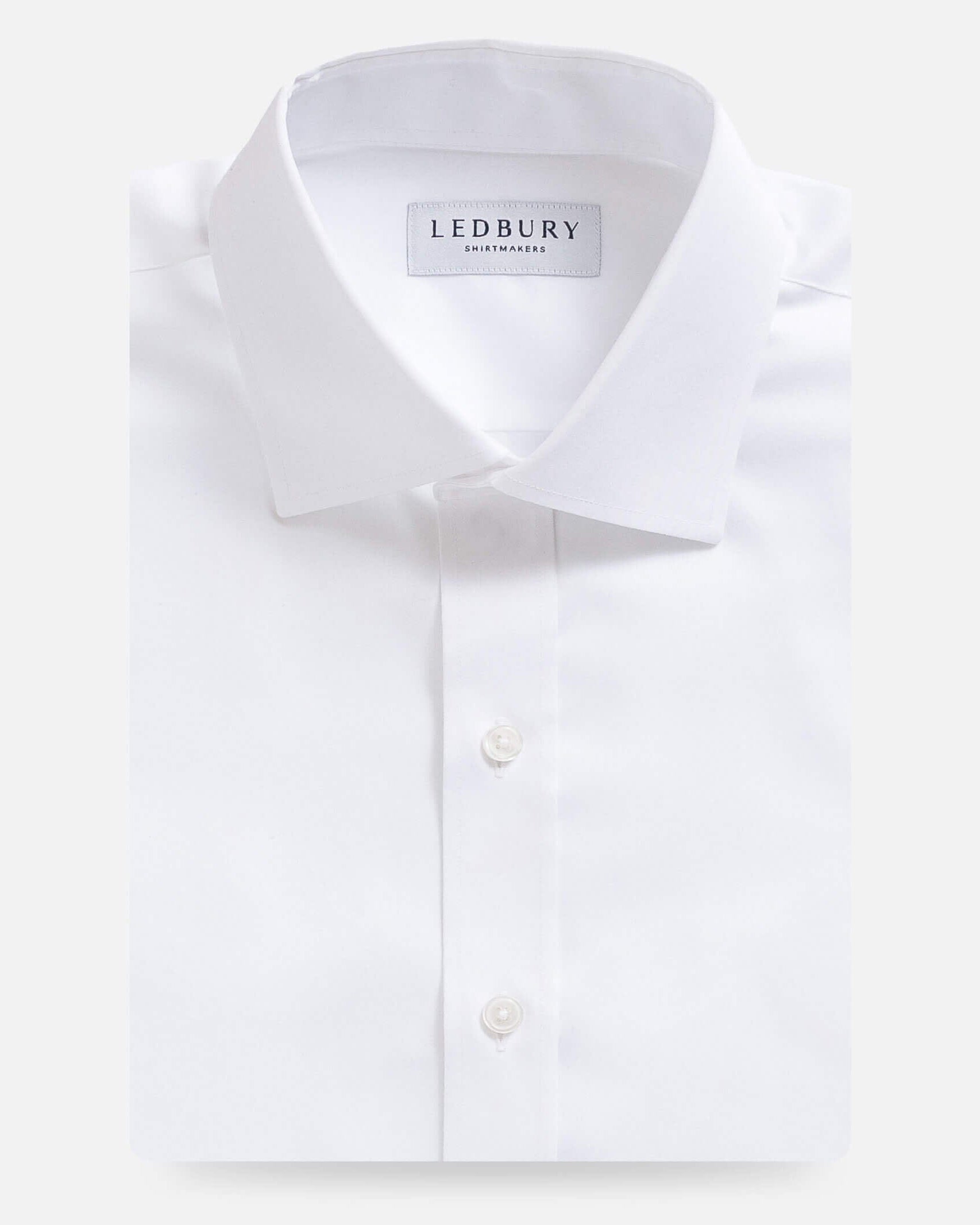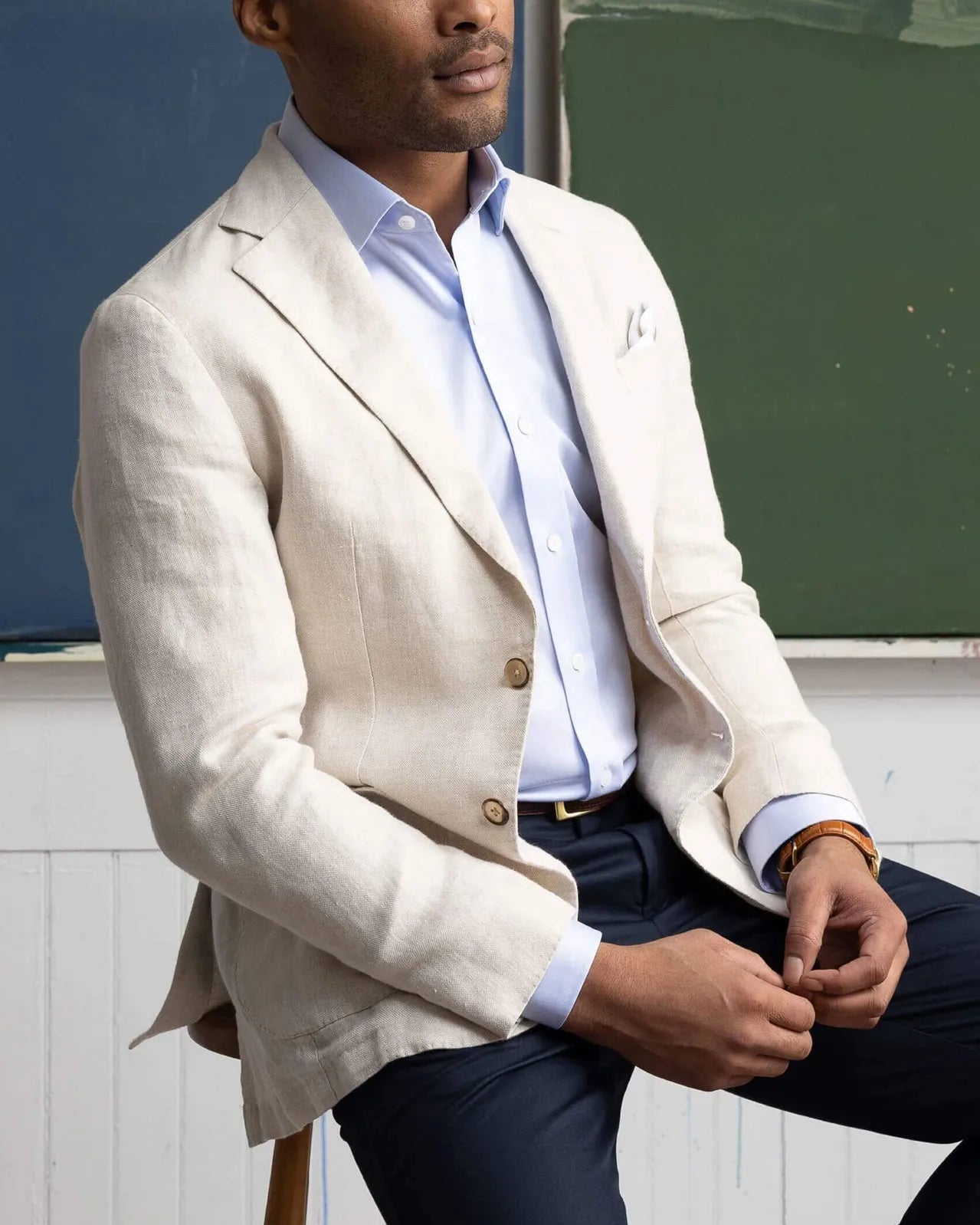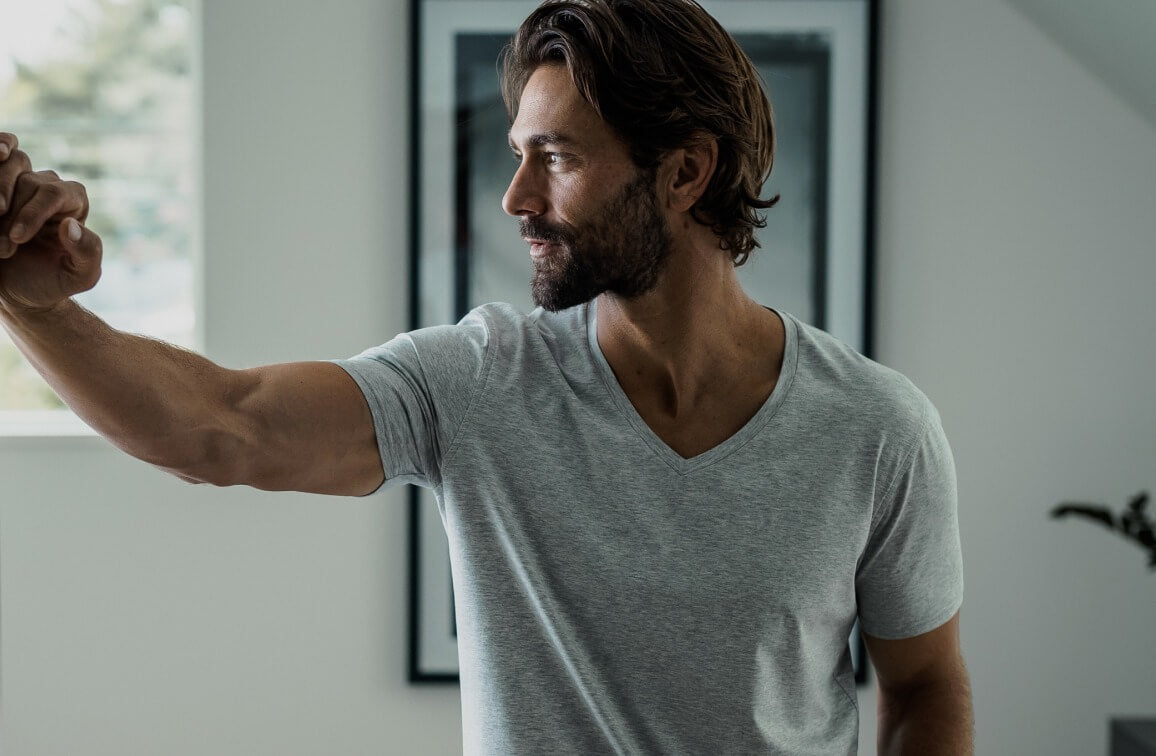



The movies with the largest marketing and production budgets tend to get the most attention. To a degree, this makes sense. Studios invest a lot of resources into these projects, so they’re going to need to see a quick return on investment. The result often feels like a shouting match for attention rather than an actual focus on crafting a narrative. One movie in particular, “Boyhood”, wasn’t a huge studio production and may have gotten lost in the movie shuffle despite its critical acclaim. And that’s a bummer, because “Boyhood” is the best movie I saw all summer (and I was no stranger to the movie theater over the past 3 months).
The film, directed by Richard Linklater, tracks the adolescence of the film’s main character, Mason Evans, Jr., from the time he is 6 until his first day in college at 18. Coming-of-age movies are a common genre, but “Boyhood” takes that concept to another level by shooting the film in real time over a span of 12 years. The story takes place from 2002 to 2014 and there are many real-time references to pop culture, music, technology, and politics scattered throughout film. Who remembers the iPod Mini?
The use of this expanded timeline helps to craft a very genuine story. “Boyhood” is as much about Mason’s life as it is about the lives of the people around him. Mason’s mom struggles to catch her stride and find her path. Mason’s dad is in and out of his life, but you can tell that he’s a decent guy that’s trying to get his head above water. And right in the thick of everything with Mason is his sister. Over the course of the film, characters age, their haircuts change, they struggle, they get back on track, mature and find themselves.
Even if you weren’t a teenager in the mid-aughts, “Boyhood” highlights the universal human moments that we can all relate to, no matter our age. Being a teenager and mumbling through awkward conversations with your parents. Dealing with authority figures. Working a lame summer job and having your manager chew you out for flirting with a co-worker. Going off to college. There were so many points in the film that I thought, “I’ve been there.” It felt both strange and a relief to see some of those more personal moments unfolding in this film.
“Boyhood” is the 12-year vision of Linklater, who may not be a household name (yet), but whose other films you may be familiar with. For example, he directed both “Dazed and Confused” and “School House Rock”. In his more experimental films such as Before Sunrise, Linklater slows down the pace to focus on dialogue and the interaction between characters. He’s creating movies that no one else is by telling stories with an unmatched level of authenticity. There aren’t any plot twists or big explosions; his movies are about the slow burn of life and human growth.
At its core, “Boyhood” is a study on how life’s events shape who we become. It uses a level of introspection that is rarely explored in contemporary films. “Boyhood” has been out for a few weeks, so try to catch it before it’s gone.



 The movies with the largest marketing and production budgets tend to get the most attention. To a degree, this makes sense. Studios invest a lot of resources into these projects, so they’re going to need to see a quick return on investment. The result often feels like a shouting match for attention rather than an actual focus on crafting a narrative. One movie in particular, “Boyhood”, wasn’t a huge studio production and may have gotten lost in the movie shuffle despite its critical acclaim. And that’s a bummer, because “Boyhood” is the best movie I saw all summer (and I was no stranger to the movie theater over the past 3 months).
The film, directed by Richard Linklater, tracks the adolescence of the film’s main character, Mason Evans, Jr., from the time he is 6 until his first day in college at 18. Coming-of-age movies are a common genre, but “Boyhood” takes that concept to another level by shooting the film in real time over a span of 12 years. The story takes place from 2002 to 2014 and there are many real-time references to pop culture, music, technology, and politics scattered throughout film. Who remembers the iPod Mini?
The use of this expanded timeline helps to craft a very genuine story. “Boyhood” is as much about Mason’s life as it is about the lives of the people around him. Mason’s mom struggles to catch her stride and find her path. Mason’s dad is in and out of his life, but you can tell that he’s a decent guy that’s trying to get his head above water. And right in the thick of everything with Mason is his sister. Over the course of the film, characters age, their haircuts change, they struggle, they get back on track, mature and find themselves.
Even if you weren’t a teenager in the mid-aughts, “Boyhood” highlights the universal human moments that we can all relate to, no matter our age. Being a teenager and mumbling through awkward conversations with your parents. Dealing with authority figures. Working a lame summer job and having your manager chew you out for flirting with a co-worker. Going off to college. There were so many points in the film that I thought, “I’ve been there.” It felt both strange and a relief to see some of those more personal moments unfolding in this film.
“Boyhood” is the 12-year vision of Linklater, who may not be a household name (yet), but whose other films you may be familiar with. For example, he directed both “Dazed and Confused” and “School House Rock”. In his more experimental films such as Before Sunrise, Linklater slows down the pace to focus on dialogue and the interaction between characters. He’s creating movies that no one else is by telling stories with an unmatched level of authenticity. There aren’t any plot twists or big explosions; his movies are about the slow burn of life and human growth.
At its core, “Boyhood” is a study on how life’s events shape who we become. It uses a level of introspection that is rarely explored in contemporary films. “Boyhood” has been out for a few weeks, so try to catch it before it’s gone.
The movies with the largest marketing and production budgets tend to get the most attention. To a degree, this makes sense. Studios invest a lot of resources into these projects, so they’re going to need to see a quick return on investment. The result often feels like a shouting match for attention rather than an actual focus on crafting a narrative. One movie in particular, “Boyhood”, wasn’t a huge studio production and may have gotten lost in the movie shuffle despite its critical acclaim. And that’s a bummer, because “Boyhood” is the best movie I saw all summer (and I was no stranger to the movie theater over the past 3 months).
The film, directed by Richard Linklater, tracks the adolescence of the film’s main character, Mason Evans, Jr., from the time he is 6 until his first day in college at 18. Coming-of-age movies are a common genre, but “Boyhood” takes that concept to another level by shooting the film in real time over a span of 12 years. The story takes place from 2002 to 2014 and there are many real-time references to pop culture, music, technology, and politics scattered throughout film. Who remembers the iPod Mini?
The use of this expanded timeline helps to craft a very genuine story. “Boyhood” is as much about Mason’s life as it is about the lives of the people around him. Mason’s mom struggles to catch her stride and find her path. Mason’s dad is in and out of his life, but you can tell that he’s a decent guy that’s trying to get his head above water. And right in the thick of everything with Mason is his sister. Over the course of the film, characters age, their haircuts change, they struggle, they get back on track, mature and find themselves.
Even if you weren’t a teenager in the mid-aughts, “Boyhood” highlights the universal human moments that we can all relate to, no matter our age. Being a teenager and mumbling through awkward conversations with your parents. Dealing with authority figures. Working a lame summer job and having your manager chew you out for flirting with a co-worker. Going off to college. There were so many points in the film that I thought, “I’ve been there.” It felt both strange and a relief to see some of those more personal moments unfolding in this film.
“Boyhood” is the 12-year vision of Linklater, who may not be a household name (yet), but whose other films you may be familiar with. For example, he directed both “Dazed and Confused” and “School House Rock”. In his more experimental films such as Before Sunrise, Linklater slows down the pace to focus on dialogue and the interaction between characters. He’s creating movies that no one else is by telling stories with an unmatched level of authenticity. There aren’t any plot twists or big explosions; his movies are about the slow burn of life and human growth.
At its core, “Boyhood” is a study on how life’s events shape who we become. It uses a level of introspection that is rarely explored in contemporary films. “Boyhood” has been out for a few weeks, so try to catch it before it’s gone.











